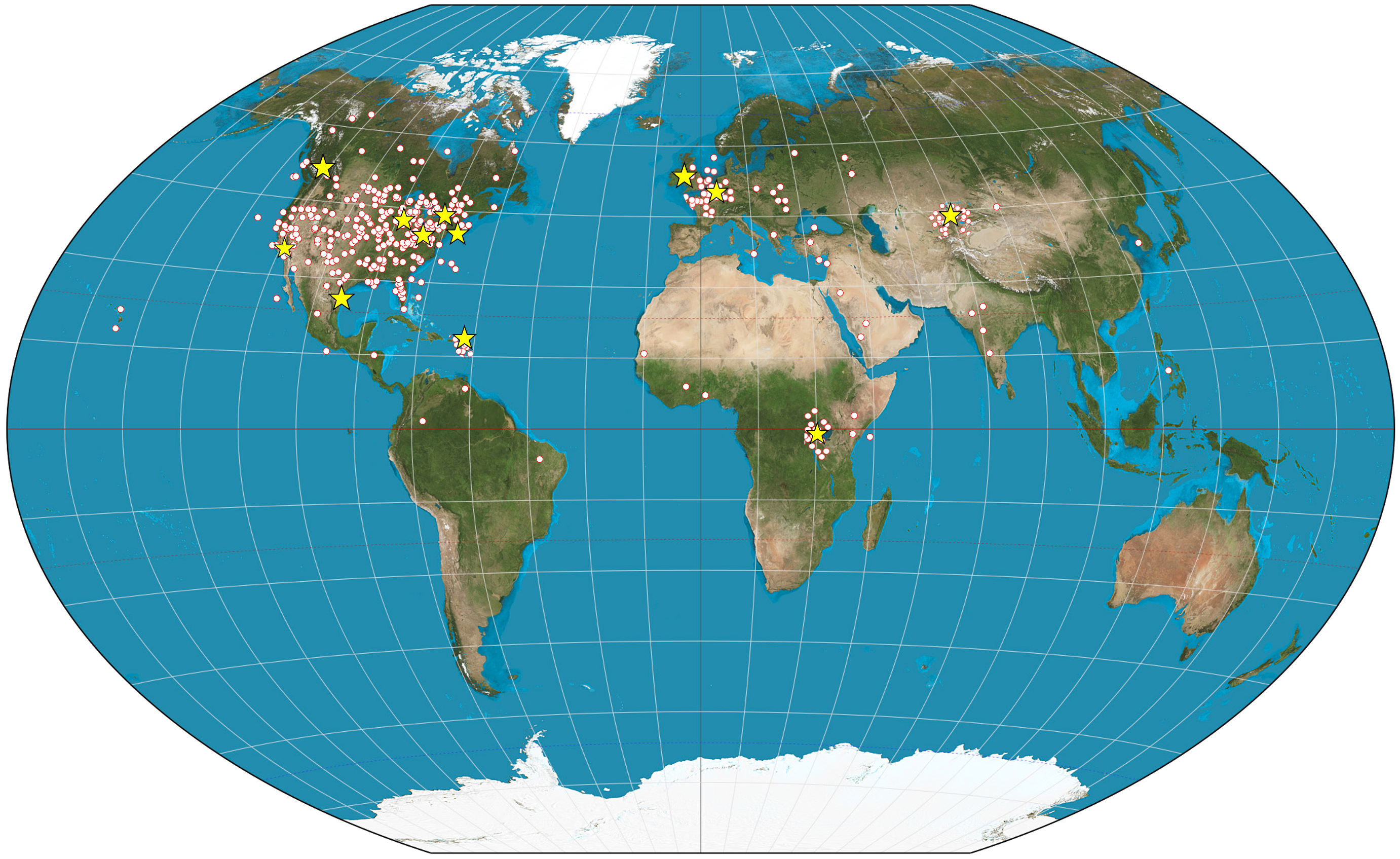PEER Impacts
PEER supports participants on their education research journeys
PEER Impacts and Results
PEER is effective.
Since 2016, PEER has provided professional development in STEM Education Research to hundreds of classically-trained STEM faculty from a wide variety of STEM disciplines.
At PEER, we believe research is responsive, playful, communicative, and collaborative. Our field schools foster a dynamic and adaptable learning environment. Researchers at PEER play with ideas and data, building robust education research skills as they push their projects forward.
Participants love PEER.
PEER participants come from everywhere.
PEER participants are remarkably equitable across gender, racial, geographic and disciplinary boundaries. The experience is particularly attractive to participants from emerging research institutions, predominately undergraduate institutions and other historically underserved institutions.

PEER changes career trajectories.
PEER is responsive to both participants’ needs for professional development as well as responsive to their departmental and institutional needs to improve undergraduate education. Because evidence of scholarship (e.g. papers & presentations, external funding) is currency for faculty, our communicative principle pushes us to support participants’ writing as an integral part of doing research.
PEER participants publish dozens of peer-reviewed publications, submit multiple grant proposals, and go up for tenure (successfully!), all growing from their projects and engagement with the PEER community. As one participant said, “I learned that I can do educational research within my context as a mathematics faculty — not only that it is theoretically possible, but that a once daunting possibility now seems more than accessible to me.”
It’s about your project.
PEER prioritizes the centrality of participants’ own projects and interests; [52, 53]. as one participant stated, “[PEER helped identify] how do you go about transforming something you might be curious about into something that’s a viable research project?” Centering participants’ own projects builds on their interests and expertise in their local contexts, increasing motivation [54] and likelihood of success [33].
Education research professional practice encompasses more than simply theories and methods. Faculty must develop expertise in project design and management, mentoring, communication, and cultural knowledge about community values and practices. Robust professional development must attend to this “full stack” of activities, both individually and as an integrated whole, tying everything together to build emerging researchers’ capabilities.


Work in community and grow your network.
In accordance with our collaborative principle, PEER intentionally promotes peer feedback and community building, directly promoting participants’ sense of inclusion in the DBER field and self-efficacy and identity as education researchers. Our research on PEER participants highlights the importance of supportive peers, engaged subject matter experts (facilitators), and explicit attention to individual projects and project management to increase sense of belonging and competency.
High quality STEM education research is not a solo effort, and many emerging DBERs face isolation as the only STEM education researcher in their department. Successful professional development must attend to their need for collaborators and communities, with teams and collaborations nucleated and supported at regional and national scales.
The networking opportunities at PEER nucleate new collaborations, even years after participants join a field school. Another participant highlighted how the experience not only developed skills but also built their professional network: “This experience was incredibly valuable not only in helping me consider next steps for my research, but also connecting me to some amazing humans who are now part of my professional network.”
PEER makes publications happen.
As a direct result of their participation in PEER, our participants have produced dozens of peer-reviewed papers and conference presentations in education research. Notably, participants continue to publish in the years after their participation, often as a result of collaborations begun during a field school, indicating that PEER can have long-term impact on participants’ professional trajectories.
Check out the List of PEER Publications